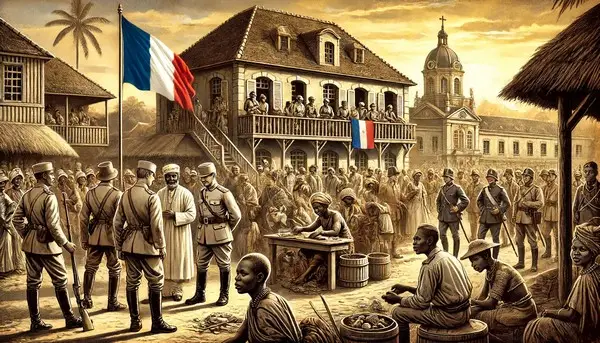Table of Contents
- Historical Development of French Colonialism
- Administration and Governance
- Economic Exploitation
- Cultural Assimilation and Identity
- Resistance and Decolonization
- Conclusion
French colonialism, a significant historical phenomenon, has shaped the geopolitical, cultural, and social landscapes of numerous regions across the globe. This essay explores the motivations, practices, and impacts of French colonialism, particularly focusing on its historical development, administration methods, economic exploitation, cultural assimilation policies, and the eventual decolonization processes.
Historical Development of French Colonialism
Early Beginnings and Expansion
French colonial ambitions can be traced back to the 16th century during the Age of Discovery. Initial French colonial efforts were driven by the quest for new trade routes and resources. The establishment of the first French colonies in the Americas, such as New France (Canada), marked the beginning of a far-reaching imperial enterprise. By the 17th and 18th centuries, French colonial expansion had extended to the Caribbean, with colonies such as Saint-Domingue (modern-day Haiti) becoming lucrative centers for sugar production through enslaved labor.
The 19th Century: The Second Empire
The 19th century saw the peak of French colonialism during the Second French Colonial Empire. Following the loss of most American colonies by the early 19th century, France turned its colonial ambitions towards Africa, Southeast Asia, and the Pacific. Key acquisitions included Algeria (1830), Tunisia (1881), and territories in West and Central Africa, forming a vast empire that was second only to the British Empire in terms of size.
Administration and Governance
Colonial Administration Models
French colonial administration was characterized by two main models: direct and indirect rule. In Algeria, for instance, a policy of direct rule was implemented, with French settlers and officials directly controlling the administration. This model aimed at assimilating colonies into the French state, promoting French culture, language, and laws.
Conversely, indirect rule was employed in regions like West Africa, where traditional local rulers were co-opted into the colonial administration. This system aimed to maintain stability and control while minimizing administrative costs.
Legal and Political Structures
The legal and political structures in French colonies varied, but a common feature was the imposition of French civil and penal codes. Colonies were often divided into protectorates and territories, each with differing degrees of autonomy. For instance, in Indochina (comprising modern-day Vietnam, Laos, and Cambodia), the French established a federation of protectorates and colonies, each governed by a Resident-General under the supervision of the French government.
Economic Exploitation
Get the full article AD FREE. Join now for full access to all premium articles.
View Plans & Subscribe Already a member? Log in.





